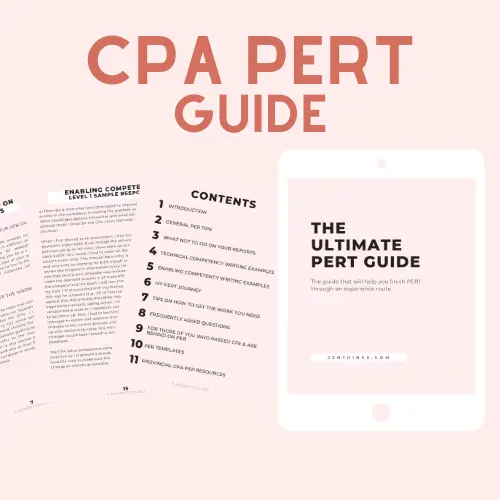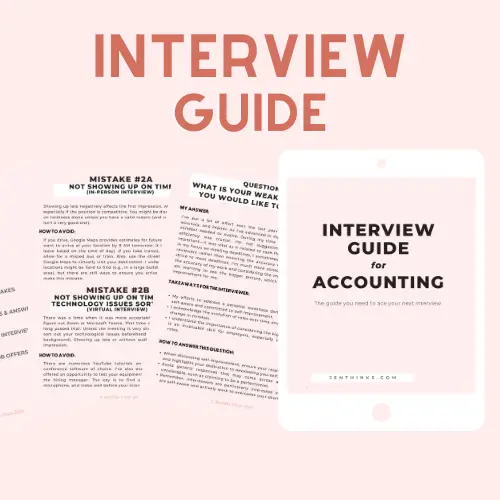As I prepare to write the CPA CFE in September, I plan on sharing every step of my journey with you all. Since my plan is to start studying as early as possible, I hope my content will be useful for candidates writing in May 2021 as well. In a previous post, I shared what I learned from the past Governor General’s Gold Medal and Regional Medal winners. This time, I will share what you need to know before you even begin studying for your CPA CFE.
Understand How to Pass CPA CFE
I still remember the first time a friend of mine explained her CFE results to me. I was so confused by the different levels (level 1 to 4) and days. The only thing I got out of that conversation was that I must look into it when it’s my turn. As you most likely already know, CFE is a 3-day exam. Some say they are in fact 2 distinct exams (1st one being Day 1 and the second bring Day 2 & 3). This would make sense as you could pass/fail Day 1 and Day 2/3 separately. In another word, you can’t pass Day 2 without passing Day 3 but you can pass Day 1 without passing Day 2/3.
YOU MIGHT BE INTERESTED – Densmore for CPA PEP – Are The PEP Essentials Packages Worth It?
Day 1 of CFE – Pass/Fail
Day 1 of CFE is easier to understand as you can either pass or fail. You are evaluated on the following
- situational analysis
- analysis of major issues
- conclude & advise
- communication
In short, you are being evaluated on how well you analyze a situation using the CPA way. You have been practicing writing your cases and PER using the CPA way and this is your chance to shine.
Day 2 & 3 of CFE – 4 Levels
Unlike the pass/fail format for Day 1, the latter 2 days of the exam are evaluated on 4 levels.
Level 1 – whether you have enough RC, C & CDs combined; overall competency
Level 2 – whether you have enough C & CDs combined under Financial Reporting or Management Accounting; note, you only need to meet the “depth” in either one of the areas
Level 3 – whether you have enough C & CDs combined under your chosen Elective Role (Finance, Performance Management, Tax or Assurance); “depth”
Level 4 – whether you have enough RC, C & CDs combined in each of the 6 competencies; “breadth”
As you can tell, you need to be jacks of all trade in order to pass the CFE. Being particularly strong in one area will not help you pass. This should show you how important it is to have an exam strategy in addition to strong technical knowledge.
CPA CFE Board of Examiners Report
The CPA CFE Board of Examiners Report published by CPA Canada is a 300+ pages document detailing how the previous CPA CFE was marked. The objective of the report was literally to help improve “the performance of candidates on the CPA CFE.” I have not gone through the report for 2019 CPA CFE yet but I for sure will when I am ready to start planning my study strategy for 2020 Sep CFE.
Competency Map for CFE
Do you recall those days when you would show up to the class before your exam to listen to the professor tell you what will be on the exam? The CPA Competency Map is exactly that. Granted, there is a lot more on the competency map than what your professor would tell you. That is because the whole 6-module PEP program is designed to help you get ready for CFE.
If you have not used the competency map for your PEP modules before, you are not going to want to skip it for CPA CFE. It will help guide you to topics and areas you are expected to know for the exam.
Pass Rate for Previous CFE
I refer to the relatively high pass rates for CPA PEP modules a lot as a reminder that the program is not designed to be impossible. It is indeed challenging but you are more likely to pass than not.
The pass rates for CPA CFE from 2017 to 2019 (the year with the software issue) ranged from 76.5% to 77.6% for first-time writers. The stats are even higher for repeat writers. Even though these stats are worse than the average for PEP (79.4% to 90.6% in 2019), they are still quite hopeful for the majority of us. What will differentiate successful writers from unsuccessful writers will be the execution of a well-planned exam strategy.
Lessons from Past CFE Writers
In addition to the CPA CFE tips I learned from the past CFE medal winners, I have also found it very beneficial to learn from other CFE writers (successful or not). This is because we all learn and study differently (some prefer solo and some prefer a study buddy) and hearing from as many perspectives as possible will help you find the best strategy for you.
RELATED POST – CPA PEP Modules – How to Study Without A Study Partner?
My personal favorites are this Reddit post by u/8iiuke, this video by iVuDang and this video by Heywood Mok.
Technical Updates for CFE (CFE Blueprint)
When you are ready to start reviewing your technicals, check out the Technical Update section on CPA Canada’s website. It provides the most up-to-date information on testable materials such as IFRS standards and tax legislation. Even though certain concepts are ever-green (e.g., the definition of a vision statement), an accounting standard change could have a significant impact on your study.


